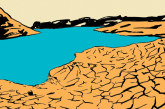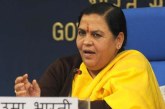The UN General Assembly on 28 July 2010 adopted a resolution, which recognises access to clean water and sanitation as a human right. The resolution, sponsored by Bolivia, received 122 votes in favour and 41 countries abstained. The resolution states that “the right to safe and clean drinking water and sanitation as a human right that is essential for the full enjoyment of the right to life.”
The resolution also called on member states and international organisations to offer funding, to help poorer countries scale up their efforts to provide clean, accessible and affordable drinking water and sanitation for everyone.
Although the right to safe and clean drinking water and sanitation is not part of the Declaration of Human Rights, its passage will lend moral and symbolic force to the provision in the policies of individual countries and the United Nations.
Passage of the right to water opened the door for an annual report to the General Assembly on the topic from Catarina de Albuquerque, the UN expert on the issue. The goal of clean water access is part of the 2015 Millennium Development Goals, with the aim of halving the proportion of people who could not reach or afford safe drinking water compared to 2000. The goals also aim to halve the number of people who lack basic sanitation.
It is worth mentioning here that Dr Arvind Kumar, President, India Water Foundation, a New Delhi-based civil society, has been campaigning for making Righ to Water as a Fundamental Right through his articles in leading journals and through writing letters to the Government of India and leaders of various political parties for the past couple of years. (FGR Bureau)



